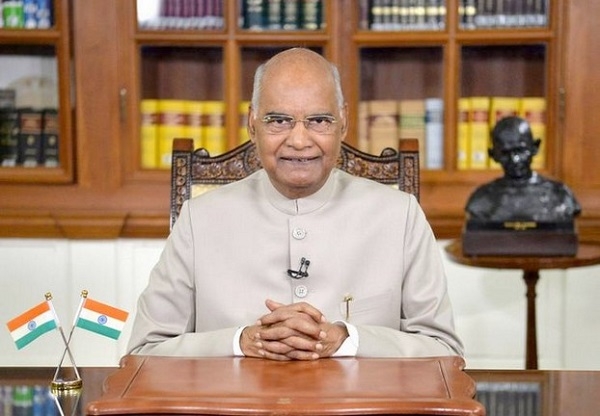NEP in J&K : 'Youth would take India to greater heights', President
Total Views | 38
New Delhi, September 21: President Kovind on Sunday welcomed the implementation of the National Education Policy in Jammu and Kashmir and said that education is the biggest catalyst for change and the youth is the most potent agent of social transformation. He said that NEP will prove to be a milestone in realising India’s unprecedented demographic dividend.
The President was addressing video conference on Sunday attended by the Lieutenant Governor of Jammu and Kashmir, vice chancellors of universities and other principals of colleges in Jammu and Kashmir. The National Education Policy, approved by the Union Cabinet in July 2020, is nothing short of a revolution. I have been meeting and interacting with school children. In my own experience, I can say it with conviction that Jammu and Kashmir is a reservoir of extremely intelligent, talented and innovative children", he said.

"I feel that the implementation of the education policy will produce students with ignited minds if I borrow the phrase of my illustrious predecessor Dr APJ Abdul Kalam. Such youth would unleash the hidden potential and take India to greater heights in future", he added.
Unfolding India's growth story that rests on the talent and energy of its youth, the President noted that our nation has an unprecedented demographic dividend but it can be realized only if the young people constituting a substantial segment of the population become skilled, professionally competent, and above all educated in the real sense.
President Kovind addressed a Conference through a video message on implementation of National Education Policy in Jammu and Kashmir.
— President of India (@rashtrapatibhvn) September 20, 2020
Details: https://t.co/ITXYDeuzGO pic.twitter.com/e6T2xnH1Oz
In this regard the National Education Policy will prove to be a milestone. I firmly believe that education is the biggest catalyst for change and the youth is the most potent agent of social transformation. And whenever these two forces have come together, it has changed the course of history, he asserted further.
The NEP proposes sweeping changes including opening up of Indian higher education to foreign universities, dismantling of the UGC and the All India Council for Technical Education (AICTE), introduction of a four-year multidisciplinary undergraduate programme with multiple exit options, and discontinuation of the M Phil programme. In school education, the policy focuses on overhauling the curriculum, “easier” Board exams, a reduction in the syllabus to retain “core essentials” and thrust on “experiential learning and critical thinking”.
Bharati Web







